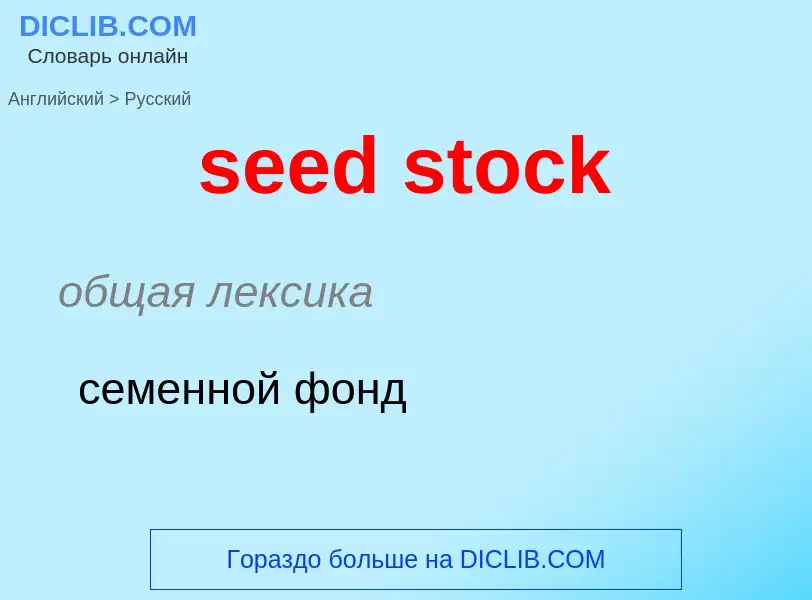Перевод и анализ слов искусственным интеллектом ChatGPT
На этой странице Вы можете получить подробный анализ слова или словосочетания, произведенный с помощью лучшей на сегодняшний день технологии искусственного интеллекта:
- как употребляется слово
- частота употребления
- используется оно чаще в устной или письменной речи
- варианты перевода слова
- примеры употребления (несколько фраз с переводом)
- этимология
seed stock - перевод на русский
общая лексика
семенной фонд
Определение
Википедия

Seed companies produce and sell seeds for flowers, fruits and vegetables to commercial growers and amateur gardeners. The production of seed is a multibillion-dollar business, which uses growing facilities and growing locations worldwide. While most of the seed is produced by large specialist growers, large amounts are also produced by small growers that produce only one to a few crop types. The larger companies supply seed both to commercial resellers and wholesalers. The resellers and wholesalers sell to vegetable and fruit growers, and to companies who package seed into packets and sell them on to the amateur gardener.
Most seed companies or resellers that sell to retail produce a catalog, for seed to be sown the following spring, that is generally published during early winter. These catalogs are eagerly awaited by the amateur gardener, as during winter months there is little that can be done in the garden so this time can be spent planning the following year’s gardening. The largest collection of nursery and seed trade catalogs in the U.S. is held at the National Agricultural Library where the earliest catalogs date from the late 18th century, with most published from the 1890s to the present.
Seed companies produce a huge range of seeds from highly developed F1 hybrids to open pollinated wild species. They have extensive research facilities to produce plants with genetic materials that result in improved uniformity and appeal. These qualities might include disease resistance, higher yields, dwarf habit and vibrant or new colors. These improvements are often closely guarded to protect them from being utilized by other producers, thus plant cultivars are often sold under the company's own name and protected by international laws from being grown for seed production by others. Along with the growth in the allotment movement, and the increasing popularity of gardening, there have emerged many small independent seed companies. Many of these are active in seed conservation and encouraging diversity. They often offer organic and open pollinated varieties of seeds as opposed to hybrids. Many of these varieties are heirloom varieties. The use of old varieties maintains diversity in the horticultural gene pool. It may be more appropriate for amateur gardeners to use older (heirloom) varieties as the modern seed types are often the same as those grown by commercial producers, and so characteristics which are useful to them (e.g. vegetables ripening at the same time) may be unsuited to home growing.



![Baltimore and Ohio Railroad Company]] Baltimore and Ohio Railroad Company]]](https://commons.wikimedia.org/wiki/Special:FilePath/B&O RR common stock.jpg?width=200)

